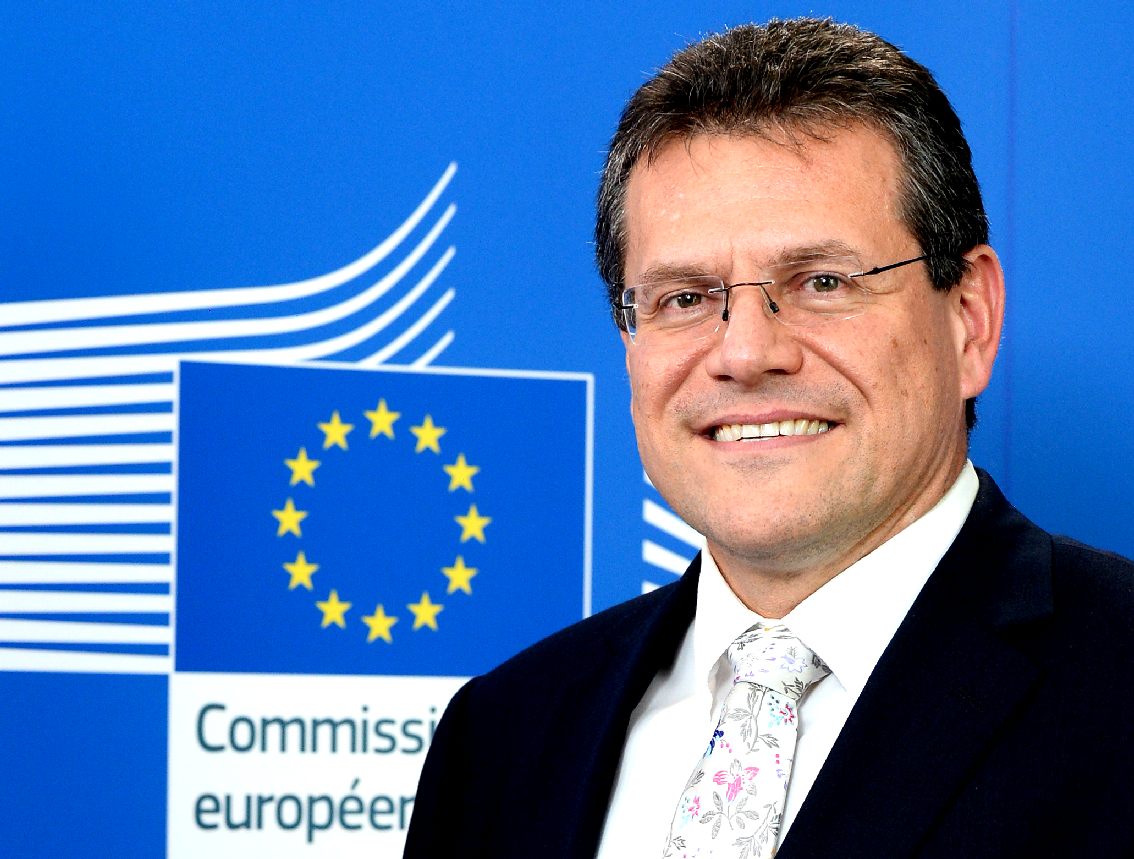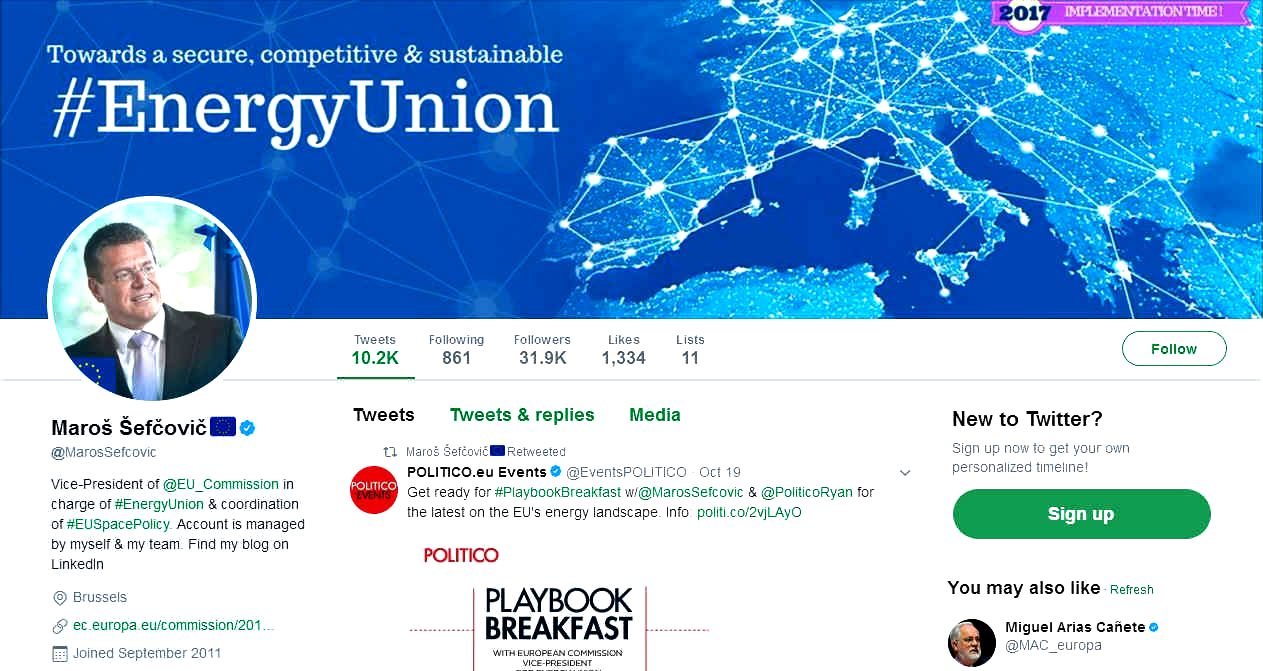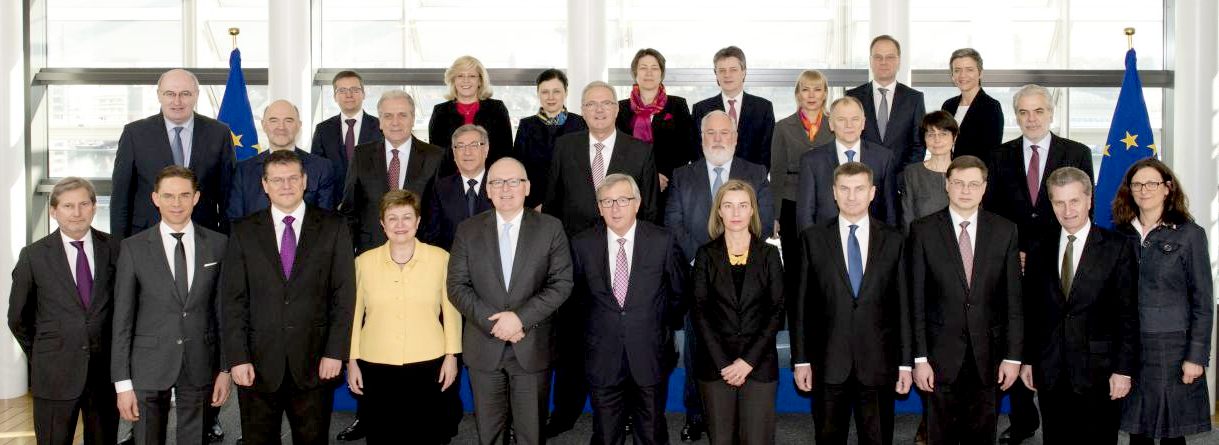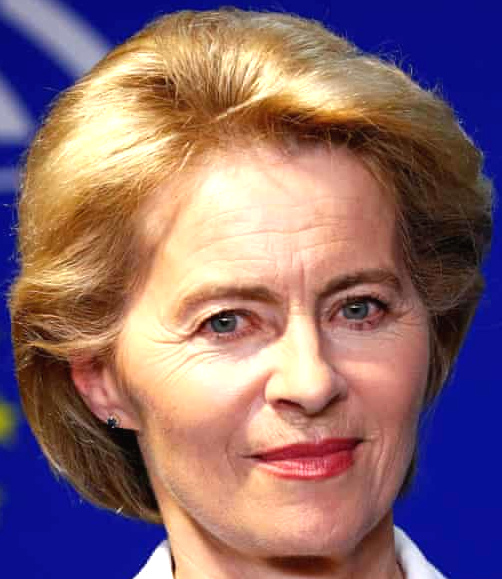|
MAROS
SEFCOVIC
ABOUT
- CLIMATE
CHANGE - FOUNDATION
- HOME - OCEAN
PLASTIC - UN
Please
use our A-Z
INDEX to navigate this site

VICE PRESIDENT
- Maroš
Šefčovič
Maroš Šefčovič was born on the 24th of July 1966. He is a Slovak diplomat and a Vice-President of the European Commission, in charge of Energy Union. He was European Commissioner for Education, Training, Culture & Youth from 2009 to 2010. In 2010, he was promoted to Vice President of the Commission, a role he served until 2014. His area of responsibility includes the administration of the Commission, including management of some of the Commission's Internal Services; in particular consolidation of administrative reform, personnel and administration, European Schools and security. Since 2014 he serves as Vice President of the Commission for the
Energy Union, he was previously slated to become the Commissioner for
Transport.
EC RESPONSIBILITIES
* Leading the project team "Energy
Union".
* Establishing a European Energy Union by connecting infrastructures, enforcing legislation and increasing competition to help drive down costs for citizens and businesses and boost
growth.
* Working to prevent energy shortages, diversifying sources of energy imports and ensuring a united European voice in negotiations to improve our
energy
security.
* Helping to mobilise additional investment in power grids,
renewable energy installations and other energy infrastructure.
* Improving energy efficiency, especially for
buildings; with a binding target of 30% less energy use by
2030.
* Coordinating the Commission's efforts to ensure the EU reaches its
climate and energy targets for
2020 and 2030.
* Co-Chair of the Global Covenant of Mayors for
Climate and Energy.
EUROPEAN COMMISSION - STATEMENT, BRUSSELS 11 OCTOBER 2017
Statement by Vice-President for Energy Union Maroš Šefčovic following the high-level meeting on
battery development and production in Europe.
"Today I heard the EU industry and the Member States' determination to work together and pull in the same direction. They strongly supported the establishment of a full value chain of
batteries in Europe, with large-scale battery cells production, and the
circular economy, at the core.
Batteries are at the heart of the ongoing industrial revolution. They represent a key enabling technology in the context of the Energy Union. Their development and production play a strategic role in the ongoing transition to clean mobility and clean energy systems.
Batteries embody our ambition, as set out in President Juncker's State of the Union, to help our industries remain or become world leaders in innovation, digitisation and decarbonisation.
As was recalled by the actors in our meeting, we are at a critical juncture.
The lack of a domestic, European cell manufacturing base jeopardises the position of EU industrial customers because of the security of the supply chain, increased costs due to transportation, time delays, weaker quality control or limitations on the design.
So, we need to act fast - and collectively - to overcome this competitive disadvantage and capitalise on our leadership in many sectors of the battery value chain, from materials to system integration and recycling.
Due to the level and urgency of investment needed, this cannot be done in a fragmented manner. It needs a Europe-wide approach.
Members of the EU industry and innovation community will drive this process, working in close partnership with the European Commission, the European Investment Bank and interested Member States, to establish a competitive manufacturing chain, capture sizeable markets and boost jobs, growth and investment across Europe.
Since time is running out, we concluded that we will join our efforts to come up with a strategic plan early next year. This could take the form of a comprehensive roadmap for an EU
Battery Alliance, to be presented in February 2018, at the Clean Energy Industrial Forum, as part of the EU Industry Days.
The work starts immediately. Following today's high-level meeting, we will organise a number of working groups, including on the supply chain, investment financing and engineering, trade issues, research and innovation, and others. Industrial participants will take the lead, express interest to participate in or even be rapporteur for each work strand.
The process launched today is of an inclusive nature."
[STATEMENT/17/3861]
EUROPEAN COMMISSION MEMBERSHIP
European Commissioner for Education, Training, Culture and Youth, 2009–2010
Šefčovič replaced Ján Figeľ as European Commissioner for Education, Training, Culture and Youth on 1 October 2009. José Manuel Barroso was Acting Commissioner in his stead, from 19 April 2014 to 25 May 2014 while he was on electoral campaign leave for the 2014 elections to the European Parliament. He ultimately decided not to take up his seat.
Vice-President of the European Commission for Interinstitutional Relations
& Admin, 2010–2014
Responsibilities included the administration of the Commission, including management of some of the Commission's Internal Services; in particular consolidation of administrative reform, personnel and administration, European Schools and security.
Vice-President of the European Commission, 2014–present
Šefčovič was appointed Vice-President of the European Commission for
Energy Union in 2014.
In July 2015, he brokered an agreement between fifteen countries from central, eastern and southeast
Europe to speed up the building of gas links, improve security of supply, reduce their reliance on
Russia and develop a fully integrated energy market.

TWITTER
- Maroš
Šefčovič's
front page on Twitter
CONTACT VP
SEFCOVIC
European Commission
Rue de la Loi / Wetstraat 200
1049 Brussels
Belgium
Email: cab-sefcovic-web@ec.europa.eu
The European Union established a Commission to act as their
executive and to promote its general interests. The Commission is composed of the College of Commissioners
comprised of 28 members, including the President and Vice-Presidents. The Commissioners, one from each EU country, are the Commission's political leadership during a 5-year term. Each Commissioner is assigned responsibility for specific policy areas by the President.

THE
COMMISSION
- Group photograph of the European Commissioners in 2017.
LINKS
& REFERENCE
https://en.wikipedia.org/wiki/Maro%C5%A1_%C5%A0ef%C4%8Dovi%C4%8D
https://twitter.com/MarosSefcovic
Role
Project
team
Name
https://ec.europa.eu/commission/commissioners/2014-2019/sefcovic_en#news
http://ec.europa.eu/maritimeaffairs/maritimeday/
https://ec.europa.eu/commission/commissioners/2014-2019_en
This
website is provided on a free basis as a public information
service. copyright © Cleaner
Oceans Foundation Ltd (COFL) (Company No: 4674774)
2022. Solar
Studios, BN271RF, United Kingdom.
COFL
is a charity without share capital. The names AmphiMax™,
RiverVax™
and SeaVax™
are trade names used under license by COF in connection with their 'Feed
The World' ocean cleaning sustainability campaign.
|






























